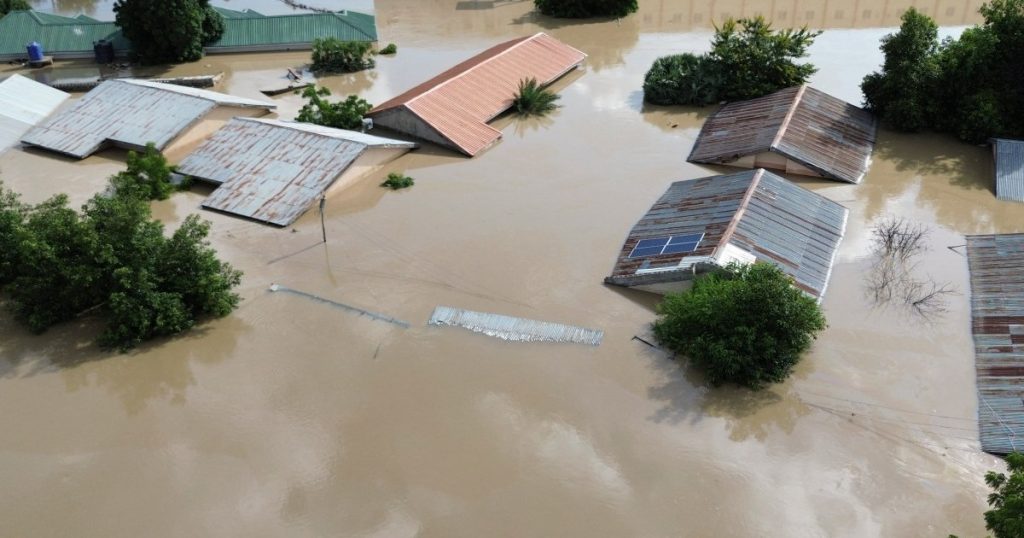Severe flooding in northeastern Nigeria has led to the deaths of at least 30 people and affected over one million others. The Alau dam on the Ngadda river in Borno State collapsed, causing some of the worst flooding in the state since a similar incident 30 years ago. The dam was overflowing due to heavy rainfall, prompting residents to evacuate their homes. Authorities fear that the death toll may rise as the situation unfolds.
This flooding comes nearly two years after Nigeria experienced its worst flooding in a decade, which resulted in the deaths of more than 600 people across the country. Ezekiel Manzo, spokesman for the National Emergency Management Agency, confirmed the death toll of 30 individuals, while an aide for the Borno State Governor indicated that around one million people have been affected. Efforts to document those displaced are ongoing, with the potential for the total number of affected individuals to rise to nearly two million.
The impact of the flooding on residents of Maiduguri, the capital of Borno State, has been significant. Food prices have increased due to the destruction of the central market by the floodwaters. In addition, a local zoo was partially destroyed, leading to the escape of several animals. The presence of escaped animals, such as a crocodile near a residential area, has caused fear among residents, further complicating the situation in the flooded region.
The flooding in northeastern Nigeria is part of a wider trend of severe flooding in West Africa. This year alone, more than 2.3 million people in the region have been affected by flooding, marking a threefold increase from the previous year. The United Nations has expressed concern over the growing humanitarian crisis caused by these floods, which have impacted multiple countries in the region. Climate change is seen as a major factor contributing to the increase in extreme weather events in Africa, with devastating consequences for local populations.
A recent report highlighted the economic toll that climate change is taking on African nations, with up to 5 percent of gross domestic product being lost annually due to the effects of climate change. The World Meteorological Organization noted that many African countries are spending a significant portion of their budgets, up to 9 percent, on climate adaptation measures in order to mitigate the impact of extreme weather events. The situation underscores the urgent need for global cooperation and support to address the challenges posed by climate change, particularly in vulnerable regions such as Africa.
As the flooding in northeastern Nigeria continues to have devastating effects on the local population, the need for immediate humanitarian assistance and long-term climate adaptation strategies is evident. The mounting death toll and high number of displaced individuals highlight the urgency of the situation. Addressing the root causes of climate change, such as reducing greenhouse gas emissions and promoting sustainable development, is crucial to preventing similar disasters in the future. The international community must work together to support affected countries and build resilience in the face of increasingly severe weather events.













